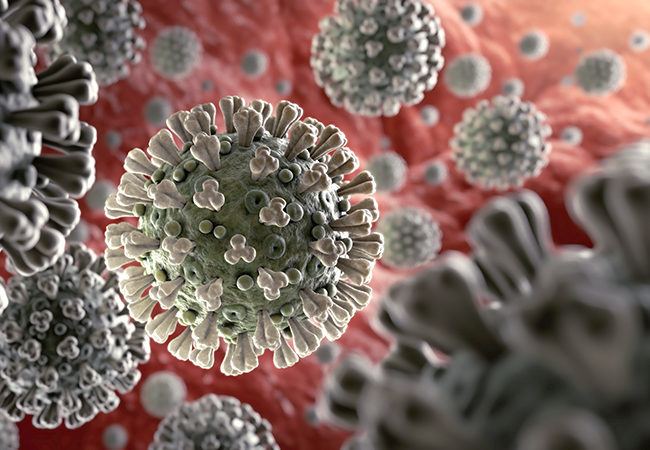Microbiology
Microbiology is the study of cellular microbes, which are living organisms that are too small to be seen with the naked eye, and a collection of even smaller acellular microbes. The cellular microbes or microorganisms include bacteria, molds, yeasts, protozoa, algae and the acellular microbes include viruses, prions and infectious RNA. To understand fully the role of these microbes in the ecosystem, it is essential to learn how they metabolize and replicate themselves, as well as how they interact with plants, animals and each other.
CAREER OPPORTUNITIES
Microbiology graduates are in demand in educational institutions, pharmaceutical, food, health, biotechnology, and other industries and in government. Thriving companies of many types have also been founded by entrepreneurs holding a degree in microbiology. Many microbiology students pursue careers in research, epidemiology, medicine and dentistry. Others work in laboratories as technicians or enter the field of medical technology. Some will choose to attend medical or dental school, or to attend graduate school in microbiology, molecular biology, genetic engineering or other related fields. Faculty positions that can combine teaching and research are available at the junior college and university levels for those who earn advanced degrees.
The food and pharmaceutical industries are major employers of microbiologists. Hospital laboratories provide a source of employment for those interested in allied health professions. Government laboratories rely on microbiologists at the state and federal levels in areas concerned with foods, drugs and environmental problems. It is possible for a microbiology graduate to begin a professional career with a bachelor’s degree.
QUESTIONS ABOUT MICRO? CONTACT:
Dr. Paul Morris, Microbiology Advisor
BGSU, Department of Biological Sciences
Bowling Green, Ohio 43403
419-372-2872

SUGGESTED CURRICULUM
The major in microbiology is designed to provide training in the basic areas of microbiology. The program is centered upon the life sciences and requires extensive coursework in both chemistry and biology. (Sufficient flexibility in the program allows students, in consultation with the advisor, to select a course of study tailored to their individual interests). The microbiology major encompasses mathematics, chemistry, and physics, in addition to basic biology principles. Aspiring applicants should consider augmenting mandatory high school coursework by taking four rather than three years of mathematics as well as biology, chemistry, and physics courses. Two, three or even four years of the same foreign language, competency in computer use, and exposure to or training in the visual and performing arts are additional excellent choices to further your career in microbiology.
SPECIAL FEATURES
Most classes are offered in the Life Sciences Building and features the use of research equipment that includes light and electron microscopes, ultraviolet and visible light spectrophotometers, colorimeters, centrifuges, imaging equipment, micromanipulators, incubators, electrophoresis and pulsed-field gel equipment, thermocyclers, and computers. This equipment is located in one large teaching and ten research laboratories. Research opportunities are available to undergraduates enrolled in all years of the program and participation is encouraged.
Instruction for the microbiology program are primarily provided faculty in the biological sciences department, with support from faculty in the chemistry and physics departments as well as the medical technology program. Students can expect to receive broadly based expert instruction from this combination of knowledgeable faculty.
LEARNING OUTCOMES
Upon completion of the baccalaureate degree, students in microbiology are expected to:
Understand the scientific process as shown in designing and implementing experiments
Evaluate evidence and differentiate between scientific and unscientific arguments
Present scientific information in appropriate oral and written formats to scientific and nonscientific audiences
Understand the basic principles of microorganisms as shown by reading and comprehending primary research literature in Microbiology
Apply knowledge of Microbiology to address a variety of needs and problems, locally and globally
Be prepared for post-baccalaureate studies in Microbiology and related fields, medical school, or for entering the private sector in areas related to Microbiology
Major only, Bachelor of Science (32 hours in BIOL) - a minor is required
Learning Outcomes
Upon completion of the baccalaureate degree, students in Microbiology are expected to be able to:
- Understand the scientific process as shown in designing and implementing experiments;
- Evaluate evidence and differentiate between scientific and unscientific arguments;
- Present scientific information in appropriate oral and written formats to scientific and nonscientific audiences;
- Understand the basic principles of microorganisms as shown by reading and comprehending primary research literature in Microbiology;
- Apply knowledge of Microbiology to address a variety of needs and problems, locally and globally;
- Be prepared for post-baccalaureate studies in Microbiology and related fields, medical school, or for entering the private sector in areas related to Microbiology.
Accreditation and/or Program/Cluster Review
Bowling Green State University [BGSU] is accredited by the Higher Learning Commission. BGSU has been accredited by the Higher Learning Commission since 01/01/1916. The most recent reaffirmation of accreditation was received in 2022 - 2023. Questions should be directed to the Office of Institutional Effectiveness.
The Microbiology program will undergo Program/Cluster Review during the Academic Year 2019-20.
Professional Licensure (If applicable)
Bowling Green State University programs leading to licensure, certification and/or endorsement, whether delivered online, face-to-face or in a blended format, satisfy the academic requirements for those credentials set forth by the State of Ohio.
Requirements for licensure, certification and/or endorsement eligibility vary greatly from one profession to another and from state to state. The Microbiology program does not lead to professional licensure.
Gainful Employment (If applicable)
Under the Higher Education Act Title IV disclosure requirements, an institution must provide current and prospective students with information about each of its programs that prepares students for gainful employment in a recognized occupation.
The Microbiology program is not a recognized occupation that requires a Gainful Employment disclosure.
Updated: 12/03/2024 02:34PM
